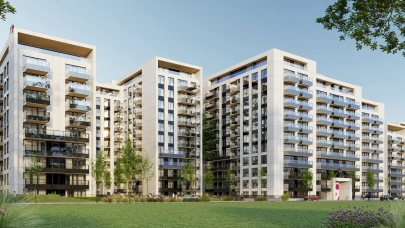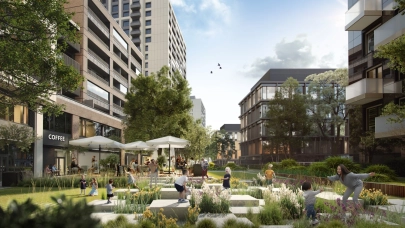
The City of Prague wants to build cooperative flats where the city could continue to rent out one-third of the flats. However, the councillors disagree on the conditions under which the entire project should be implemented in Prague 5. If they agree and construction begins, the project would offer cooperatives favourable conditions for financing housing without a mortgage and cheaper prices for construction by the developer. The councillors are now trying to find a compromise to get the project off the ground, reports Seznamzprávy.cz.
Prague plans to establish a housing cooperative and then build up to 266 new flats in Prague 5. A third of the flats would be for Prague, which could rent them out. This is to be the first project of its kind for the capital. A team led by the councillor for legislation and housing support Hana Kordová Marvanova (STAN) is preparing to launch a public tender for the selection of a partner for the construction of the Smíchov project. However, according to Seznamzpravy.cz, disagreements among the city councillors are blocking this process. According to the original plan, the project should have been approved by Prague city councillors long ago, but it has not yet reached them. The project has been delayed, and Councillor Marvanová fears that it will not be implemented due to the councillors' disagreements. The situation is also complicated by the upcoming elections.
The councillors in the cooperative housing project are commenting, for example, on the form and financing of the land for the construction of the cooperative housing and the method of selecting members of the cooperative. They consider it to be non-transparent and are concerned about unauthorised manipulation of the flats. However, the author of the project defends the selection of members of the housing cooperative. According to her, the evaluation of applications will be the responsibility of the capital city. The Prague Association does not like the fact that the project does not address the crisis scenario in which some of the cooperative members would no longer be able to pay the monthly "rent". According to Marvanova, the efforts to reach a compromise on the points described above should continue in the coming days. "If a consensus can be reached, the project could go to the Council for a vote in early June. A week later, it could then be voted on by the City Council," the councilwoman said.
The main advantage of this cooperative housing in partnership with the City is to be the fact that those interested do not have to take out a mortgage, but the construction of the house will be financed by a loan taken out by the co-operative. The individual co-operators will repay this loan as part of the monthly payments associated with the use of the flat. Another benefit is that the developer's margin is 25 to 30 per cent lower than current market conditions and that, thanks to the support of the capital, the cooperatives do not have to pay for the land at the beginning. The land designated for co-operative housing is provided by the city and the co-operative is granted the right to build on this land for up to 99 years. Once the construction loan has been repaid, the cooperative will have the right to buy the land from the city. This will spread the cost of housing over a very long period. Another municipality where a similar project is planned is Prague 13.



